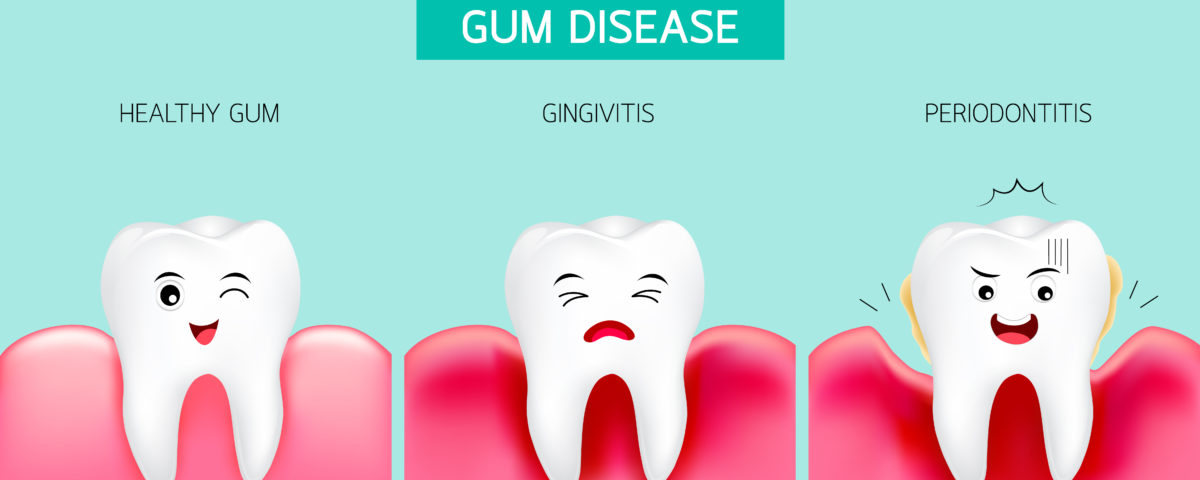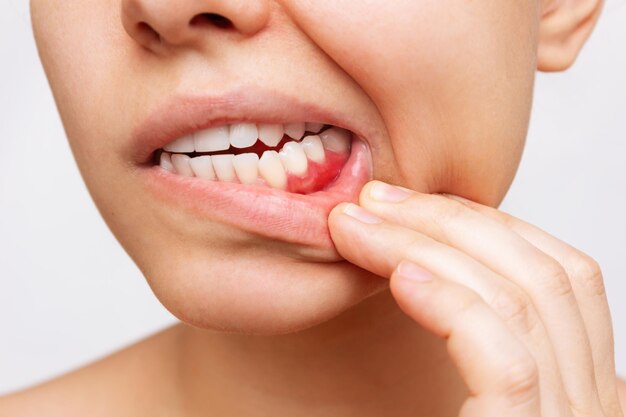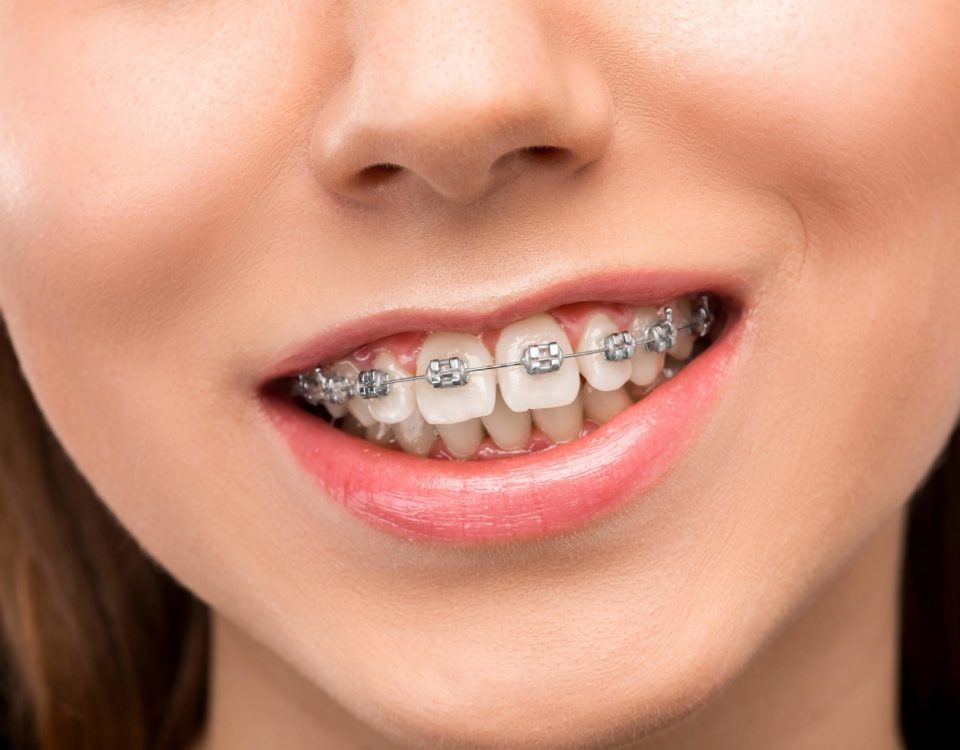The Nature of Gingivitis and How to Prevent It

Here’s a Way You’ll Will Never Have Cavities Again!
March 21, 2019
A smile to change your life
April 16, 2019Do your gums bleed when you brush or floss? Is it sore or outright painful when you eat? Do you have bad breath that mouthwash doesn’t cover up? Are your gums red or purple and swollen? Do they feel squishy, like a gummy bear? Do your gums look like they are receding? It’s very possible you have gingivitis.
What is Gingivitis?
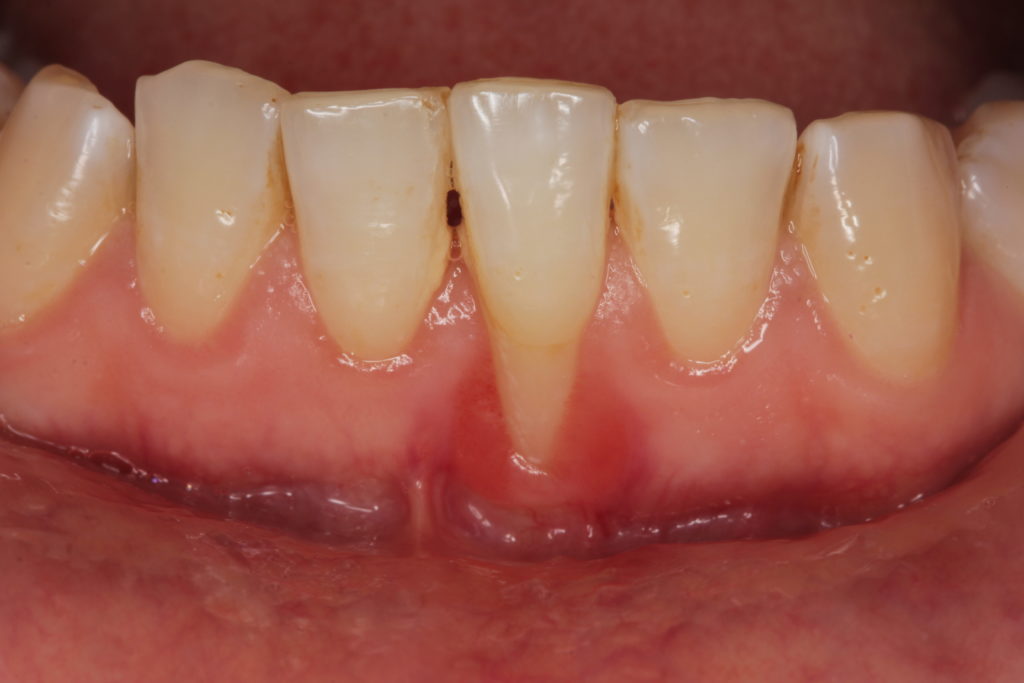
Gingivitis is an inflammation of tissues around the teeth (also known as your gums or gingiva). When it first starts, you may not even notice it. It is the very early development stage of “Periodontitis”. The gums become red and painfully swollen at this stage. Eventually it gets to the point where is causes bleeding when you floss or even brush your teeth. It can also cause sleepless nights with an aching mouth.
What causes gingivitis then?
The main cause of gingivitis is poor oral hygiene. Bacteria build up around your gum line, causing a sticky plaqueto form on your teeth. When not removed, it hardens into tartar which in turn irritates the gums, causing them to inflame. This is why adequate brushing and flossing is required!
Did you know that regular smokers get gingivitis more often than non-smokers? Smokingintroduces harmful substances from cigarettes (or chewing tobacco), such as nicotine and tar. It should be no surprise that these can cause gum problems, halitosis, oral thrush, cancers, dental caries or tooth decay, teeth stains and etc. Nicotine also interferes how our body responds to bacteria as it impairs theleukocyte functions.
Pregnancy is another possible cause. As stated by PubMed.gov, ovarian hormones such as estrogen and progesterone rise at this stage causing pregnant women to be more likely to experience gingivitis. It is said that gingivitis generally occurs to 60-75% of pregnant women, but if they practice good oral hygiene in the beginning of pregnancy, the rate will only be 0.3%.
Hormone changes during puberty, menopause and the menstrual cycle can also cause sensitivity in the gingiva.
Nutritional Deficiency is also included in the list of possible causes. Lack of good nutrition can affect one’s health causing various health problems including gingivitis. Vitamin C deficiency (in extreme cases it can progress to scurvy!!) is linked to gum disease.
Human Immunodeficiency Virus (HIV) leads to a higher risk of gingivitis. Having HIV is a serious matter, it reduces the immune system’s effectiveness which affects all the body systems. The mouth will be a good indication if you have an immunodiciency through observing it. At an early stage of HIV, several symptoms will show up especially in your mouth.
- Dryness of Mouth & Cavities
- Oral lesions
- Thrush
- Gum Disease/Gingivitis
- Hairy Leukoplakia
- Periodontitis
- Oral Cancer
These symptoms might give you a sign whether you have existing HIV or not. But, the most effective way in knowing such is to get tested and you’re off to go. Getting tested is far more reliable than doubting yourself.
Since we’re on the topic of immunodeficiency, if you are currently experiencing personal or psychological stress and have sleepless nights, you might experience gum diseases too. Stress is linked to suppressing the immune system which will affect the general functions in the body.
Medications may also lead to gingivitis. Drugs like anticonvulsants, calcium channel blockers, and immunosuppressants can cause gingival overgrowth. Make sure that the next time you visit your dentist, you mention ALL medications and supplements you are (or were) taking.
Diabetics have to be even more careful. If you’re diabetic and you accidentally brushed your teeth hard, you could cause your gums to become inflamed or swollen. Because you have high levels of blood glucose, it can take significantly longer for your gingivitis to heal. This is because decreased blood circulation makes it hard for the body to repair wounds. If you are diabetic and suspect gingivitis, you should seek medical assistance right away.
How to know if you have gingivitis?
These are the symptoms of gingivitis that will help you know if you have one:
- Swollen and Red Gums
- Frequent Gum Bleeding
- Receding Gums
- Halitosis or Bad Breath
- Fever (Early Stage)
- Malaise
- Pain
- Bleeding on Tooth Brushing
How to treat gingivitis?
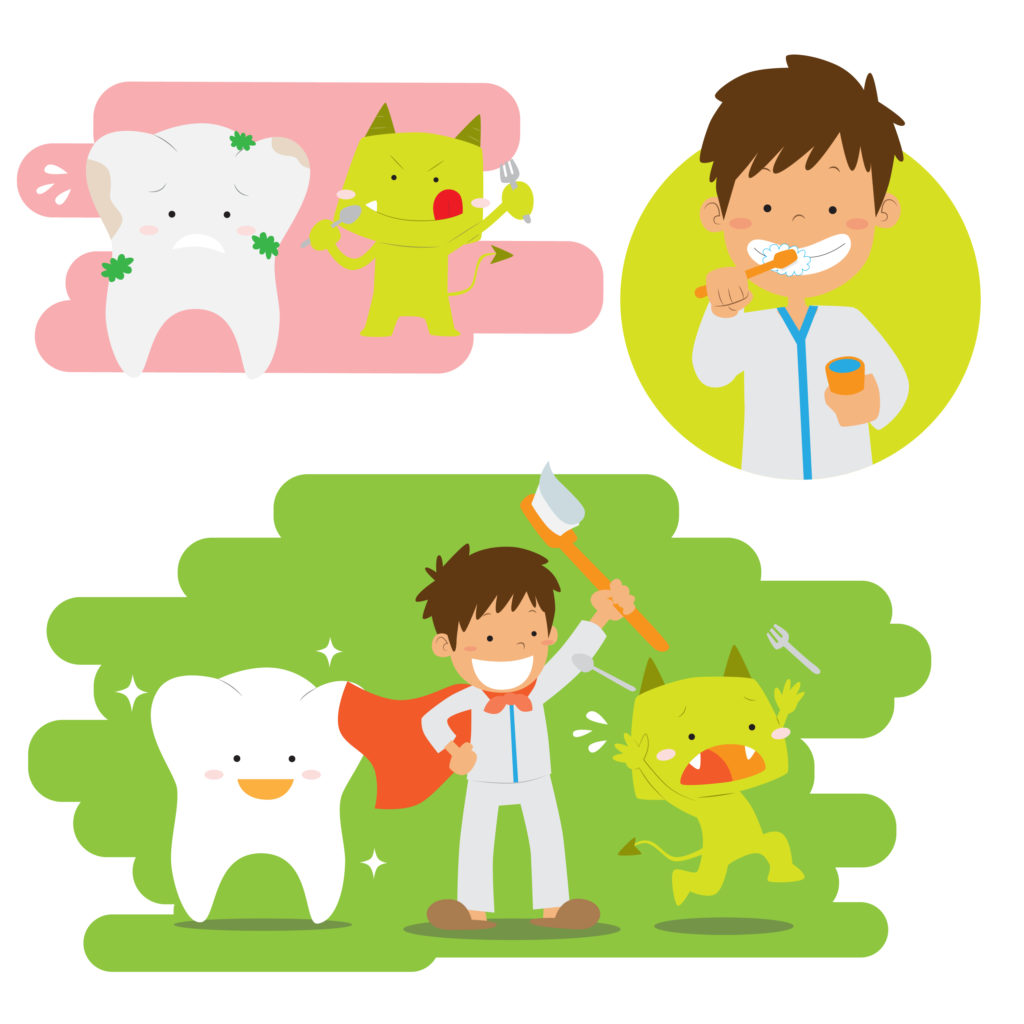
- The cure starts within you. Always make to brush your teeth at least twice a day, in the morning and at night. Be smart in choosing toothbrush as their textures could differ.
- Soft bristled toothbrush is highly recommended. When brushing your teeth, don’t scrub too hard as it will irritate the swollen gums and may cause bleeding.
- Replace your toothbrush every 3 months.
- Flossing is also a good way to deep clean your teeth and gum line.
- Stop smoking. This is a very important advice for all smokers, your oral health is not just in danger, you are prone to lung cancer and other health risks.
Maintaining proper oral hygiene is essential. It sounds like such a small thing but it can be one of the easiest things to help ensure good health.
Included in proper oral hygiene, visiting your dentist every 6 – 9 months is highly advisable. If you have multiple factors affecting your risk of gingivitis, it may be recommended that you come more often.
If you have any of the symptoms listed above or feel like something has changed it the biome of your mouth, come in and see us. A check up and cleaning may be all it takes but we’ll be able to put you on the path to proper oral care.

